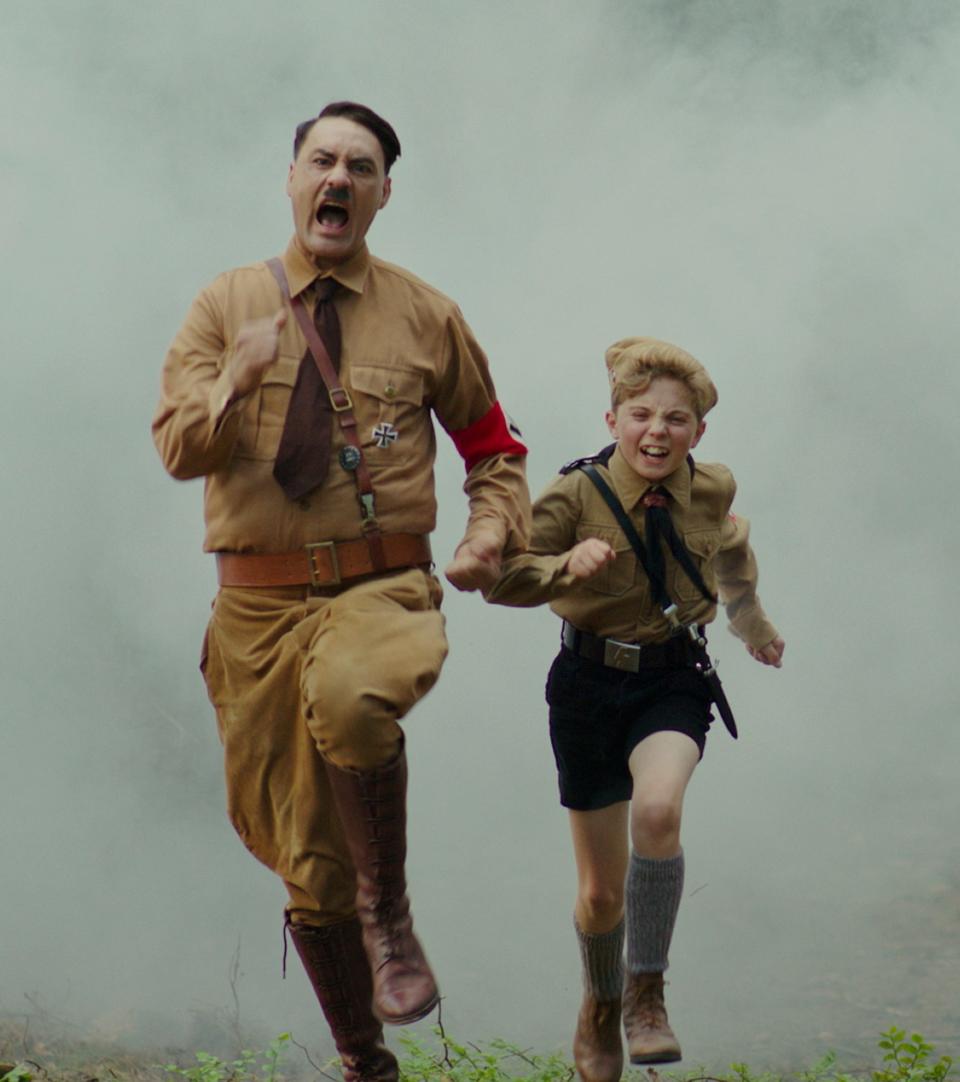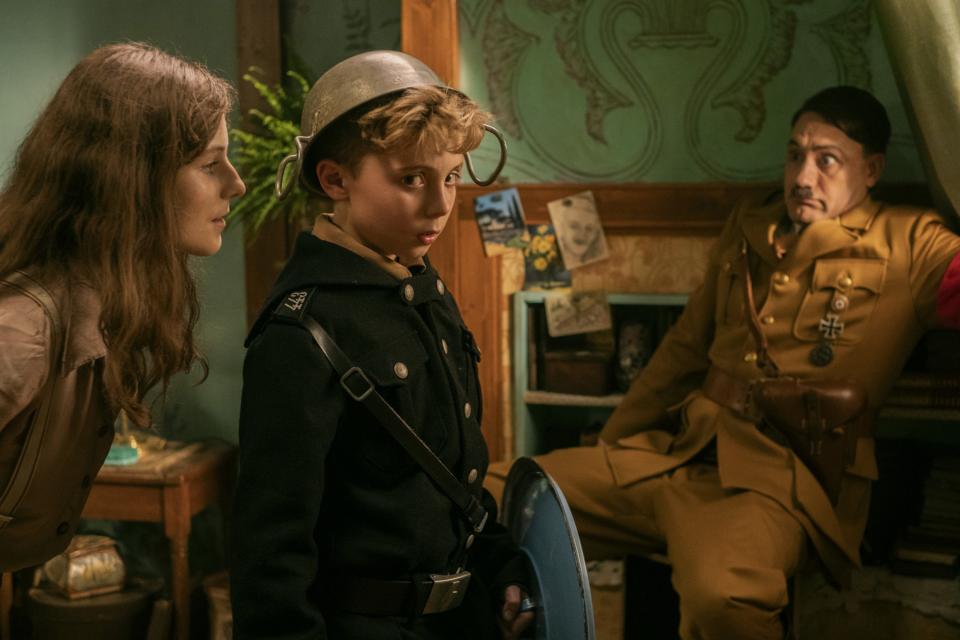Why 'Jojo Rabbit's Taika Waititi didn't study Hitler before playing him
Let’s just say making a movie about a child whose imaginary best friend is Adolf Hitler wasn't an easy sell.
Back in 2011, “it was already a hard film to even describe to my friends when I was writing it," says Taika Waititi, 44, who plays a buffoonish Hitler in "Jojo Rabbit" (now showing in New York and Los Angeles, expanding nationwide through fall), a satire which he also directed. ”You could just see them going, 'Why are you doing this? You’re on a roll – this is a career-ender, mate!’
"I just wrote the script that I considered really good and sent it around and said, ‘Just get through the opening and it will start explaining itself to you.' ”
More 'Jojo Rabbit': Scarlett Johansson opens up on the ‘loneliness' of single parenthood

New Zealand-born Waititi, who is half Maori and half Jewish, has spent much of the past decade on projects brimming with his signature blend of absurdist humor and heart. After earning fame at home with films like 2010's "Boy" and the 2014 vampire mockumentary "What We Do In the Shadows" (which was recently adapted into a FX TV series), his 2016 Sundance hit "Hunt for the Wilderpeople" put him on the map.
Plucked from the indie world by Marvel, Waititi directed 2017's "Thor: Ragnarok," which raked in $854 million worldwide and gave Chris Hemsworth's thunder god his mojo back.
So again, why now a Hitler comedy?
Review: Love's at the heart of Taika Waititi's brilliant Nazi-mocking satire 'Jojo Rabbit'
"The snobbery of filmmaking is this ludicrous idea that comedy isn’t art or that comedy can’t change the world or that comedy can’t change people – that you basically have to depress an audience in order for it to be meaningful," Waititi says.
The director has often turned to a child's gaze while wading into issues of loss, fear and morality. In “Jojo Rabbit,” he approaches World War II through a 10-year-old German boy's eyes: Jojo Betzler (Roman Griffin Davis) is an avid member of the Hitler Youth, rattling off Hitler’s racist hatred of Jews and imagining the fascist leader as his de facto father. Ridiculous Nazis (Sam Rockwell, Rebel Wilson) fill out Waititi's black comedy, which features Hitler as a pudgy, crass character coaching Jojo through the shock of discovering a Jewish teen his mother (Scarlett Johansson) is secretly hiding in their attic.
'A love letter to mothers': Taika Waititi on his latest film 'Jojo Rabbit'

Waititi's Hitler was purposefully unstudied. “I had no interest at all in portraying him authentically. I didn’t want him to have the satisfaction of knowing that someone studied him, studied every nuance of his physicality ... (including) how he speaks," he says. "I don’t think he deserves someone making that much effort."
The audacious film has proven to be a hit with audiences, with a 100% fresh rating on Rotten Tomatoes. And in September, "Jojo" won Toronto International Film Festival’s highest audience award, a bellwether for Oscar nominations. But the movie has also split critics (77% gave it positive reviews on Rotten Tomatoes), some of whom have chastised Waititi for not giving weight to the devastation of the Holocaust.
Johansson, who is Jewish, recalls how “rare” it was to read a script as arresting as Waititi’s.
“It’s not that it takes the Holocaust lightly at all,” she says. “It’s the perspective of the boy and the innocence with which he looks at the world. That’s why it can be handled with a sort of whimsy in a way. And maybe that’s disturbing to some people – that’s also OK, to have that reaction. But it’s a very pure story, and it’s very hopeful. It ends with a lot of hope, and I think that is very impactful, too.”
In person, Waititi shrugs off such criticisms, citing the film's message of kindness – and an 80-year history of artists skewering Nazis in film, from Charlie Chaplin's “The Great Dictator" to Mel Brooks' "The Producers."
"I know I’m in good company and that I’m following in the footsteps of smart storytellers who get it," he says. "And it’s just a matter of waiting for everyone else to catch up."
This article originally appeared on USA TODAY: 'Jojo Rabbit': Taika Waititi takes on critics, explains goofy Hitler

